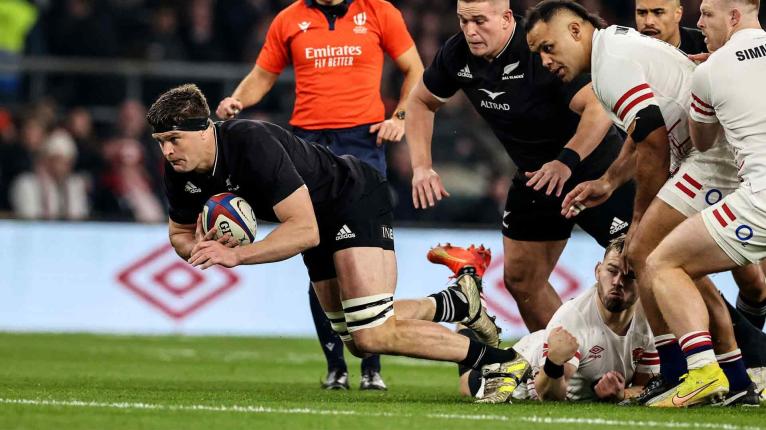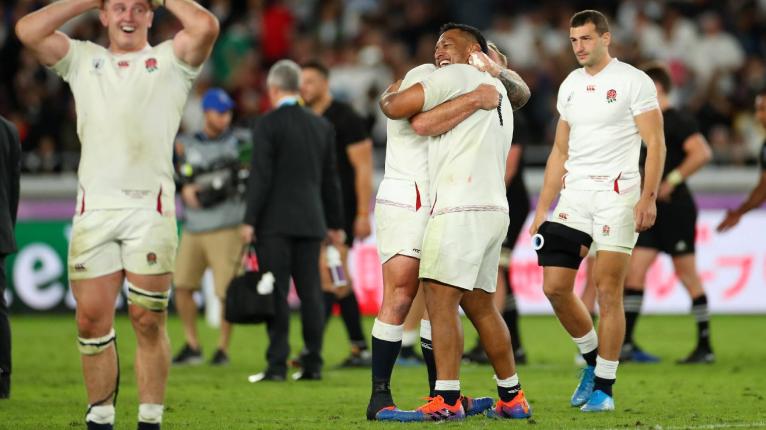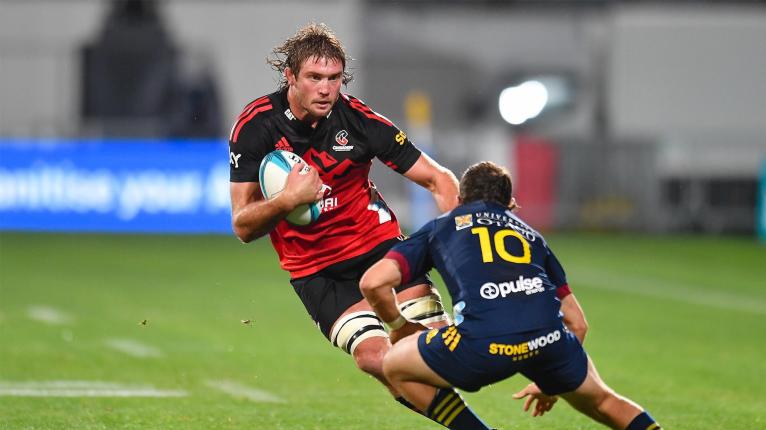2023 could be the year that Scott Barrett proves himself a world-class operator in the pack.
While he’s not necessarily received the plaudits of some of his All Blacks teammates in recent times – at least from the wider public – Barrett has proven himself an integral part of the New Zealand engine room, and it’s difficult to envisage the 29-year-old not playing a key role in the upcoming World Cup campaign.
“He’s been just phenomenal in his ball carrying and his work rate,” said NZ forwards coach Jason ahead of the nation’s final Test of 2022 against England. “We just couldn’t not have him on the park.
“Test matches are won in big physical encounters and Scott Barrett is an unbelievable athlete; he’s powerful, he’s unbelievably tough and he just has to be in the pack. It’s quite simple.”

The complicating factor, of course, is the presence of Brodie Retallick and Sam Whitelock.
Retallick is a former World Rugby Player of the Year and has been one of New Zealand’s best over the better part of the last decade. He may no longer be the same player he was in 2018 but his experience and physicality make him difficult to omit from any high-stakes encounters.
Whitelock is in a similar boat. He has well and truly reached his twilight years and won’t necessarily be moving bodies as efficiently as he was during his glory days but his lineout nous is unparalleled in New Zealand and the All Blacks set-piece is markedly less imposing without Whitelock calling the shots.
Young hooker Samisoni Taukei’aho was excellent at hitting his targets throughout the bulk of the season but against Japan, in the one fixture where Taukei’aho featured without Whitelock on the team sheet, the lineout spluttered along without ever looking convincing.
It was a left-field decision to run Barrett in the No 6 jersey in the semi-final stages of the last World Cup.
With Retallick and Whitelock entrenched in the second row, there’s really only one way the All Blacks coaches can get Barrett regularly contributing, and that means fielding him on the blindside flank.
It was a left-field decision to run Barrett in the No 6 jersey in the semi-final stages of the last World Cup and while the selection wasn’t the reason behind New Zealand’s 19-7 defeat, it was a tactic that probably needed to be tested in advance before being rolled out in what was the All Blacks’ most important game of the four-year cycle.
“If I turn round and say (the selection) backfired, then Scott is going to feel pretty average. So I’m not going to turn around and say it backfired. I’ll take that one on the chin,” then-coach Steve Hansen said after the loss.
“Scott came out and played as well as he could. Did we want to win some more lineout ball? Yes, we did. But we didn’t. It takes more than one person to do that.”
“If we had our time again we might consider doing something different.”

The intention had been to upset England’s well-drilled lineout but it’s Barrett’s all-round game that now makes him a must-pick in the All Blacks’ first-choice line-up – that and the fact that there isn’t any other obvious pick at blindside flanker.
Akira Ioane and Shannon Frizell have been given the most opportunities at No 6 since Ian Foster took over as coach following the 2019 World Cup.
Frizell has notched up 10 appearances on the blindside flank over the past three years while Ioane has 15 to his name. Although Ioane looked the better prospect early in the World Cup cycle, it was Frizell who seemed to have jumped ahead in the pecking order this year, being preferred at No 6 for three games on the trot when the All Blacks were desperate for wins in the middle stages of the Rugby Championship.
However, come the final match of the season – and their toughest opposition since taking on the Springboks in South Africa in August – it was Barrett who was named on the flank.
Barrett will spend a few weeks on the sidelines due to All Blacks rest requirements, but it will be fascinating to see how coach Scott Robertson utilises his ample pack resources throughout the campaign when everyone is fit and available.
The dark horses are Crusaders Ethan Blackadder and Cullen Grace.
The former was a pet favourite of the selectors throughout 2021, racking up five appearances (three on the blindside, two on the openside) in his debut season. Injury robbed him of furthering his career in 2022, but with former Crusaders assistant Jason Ryan now a selector, Blackadder might find himself quickly rushed back into the inner circle.
Grace, on the other hand, has just a handful of international minutes to his name but his work for the Crusaders throughout the latter stages of last year’s title-winning campaign was exemplary, particularly in the final.
Both men will harbour desires on making a return to the international arena and the upcoming Super Rugby Pacific season perhaps takes on more meaning with the World Cup quickly approaching, with Barrett, Blackadder and Grace all set to play key roles in the Crusaders’ title defence.
Barrett will spend a few weeks on the sidelines due to All Blacks rest requirements, but it will be fascinating to see how coach Scott Robertson utilises his ample pack resources throughout the campaign when everyone is fit and available.
With Whitelock, Quinten Strange, Mitchell Dunshea and Zach Gallagher all on the books, you would think that there might be some opportunities for Barrett at No 6, but Blackadder and young up-and-comer Dominic Gardiner are also options in the position, as is Grace – although he’ll likely spend much of the year at the back of scrum.

A first-choice pack could incorporate all five of Whitelock, Strange or Dunshea, Barrett, Blackadder and Grace, with Blackadder asked to continue his development as an openside flanker and Barrett given the reins to really push his case as an out-and-out blindsider.
What he gives up in mobility he makes up for with a strong shoulder and the sort of carry game that first brought both Whitelock and Retallick to the selectors’ attention over a decade ago. Discipline has sometimes been an issue for the middle Barrett brother over the years but there were no issues to speak of in 2022 and the ongoing selection of the 29-year-old on the blindside flank has more upside than downside at this point in the World Cup cycle.
With a key encounter against Ireland or South Africa in the quarter-finals likely to prove one of the All Blacks’ most difficult – not to mention crucial – matches of the season, a strong maul defence is a must and a Ryan-coached tight-five forward such as Barrett is perhaps better suited to help repel the inevitable onslaught in Paris than a Shannon Frizell or Akira Ioane.
But the decision for Barrett to don the No 6 jersey is not one that Foster should make in the weeks leading up to the World Cup quarter-finals, it’s one that needs to be made before the season even kicks off. If Scott Barrett is the best man for the job then the blindside flank is the role he should be filling week in and week out, and least in the black jersey.
Barrett, like Retallick and Whitelock, is currently only contracted to New Zealand Rugby until the end of the year. Unlike his compatriots, time is very much still on Barrett’s side and it would come as somewhat of a surprise if he were to head offshore at the end of the season. Regardless, the campaign ahead presents him the opportunity to either sign out on a massive high or entrench himself in the starting line-up for years to come.
Foster’s men have just five matches to prepare themselves for France 2023, and that means there’s little time for experimentation. Barrett, Frizell, Ioane or maybe Ethan Blackadder? It’s a decision that could have massive implications on New Zealand’s success in nine months’ time.


Comments
Join free and tell us what you really think!
Sign up for free